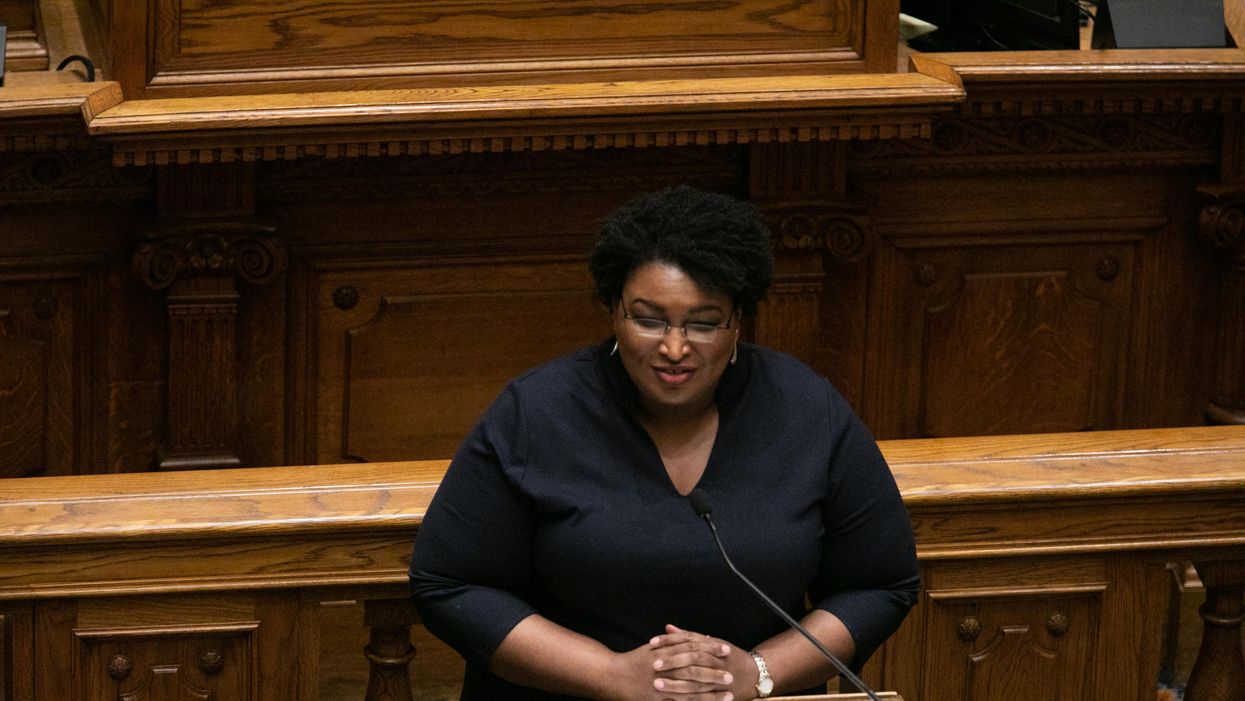When Joe Biden becomes president in four weeks, he will face an unprecedented number of crises. An unabated global pandemic. An increasingly unequal and fragile economy on the verge of recession. A climate rapidly worsening. A generational fight for racial justice causing a society-wide reckoning.
All are monumental, potentially existential challenges. But it will be impossible to make progress on any of these problems without addressing perhaps the most profound crisis the new administration will face — the crisis in democracy itself.
A fight for the survival of democracy requires a solution that may seem laughable, but is completely necessary. The new president needs to appoint a democracy czar.
This crisis in democracy has not solely been caused by the autocratic tendencies of President Trump, and will not go away when he leaves office. Over the last several decades, the American people have become increasingly distrustful of a system of governance they feel has produced more cronyism than results. The sobering statistics are endless but include: Fewer than 20 percent of Americans trust the federal government to do the right thing, a historic low, and fewer than 30 percent of young people even think democracy is the best form of governance.
And despite an election that by all accounts was free and fair, historically high levels of polarization remain — stimulated by a Republican Party that has put winning above democracy, meaning tens of millions still wrongfully believe Biden was not rightfully elected president.
While these numbers are alarming, the democratic backsliding and erosion is not just an American trend. Across the world, democracy is at the precipice. Wholesale change, wrought by automation of the economy and societal demographics, is provoking fear. Societies are questioning whether democracy can actually work. And across the world, leaders from Hungary to Thailand to the United States have been taking advantage.
So if the president-elect wants to have any chance of succeeding in his ambitious policy agenda, he must make restoring democracy an urgent priority. And to help spur this critical rebuilding project, he should put a single person in charge as soon as he's inaugurated.
Yes, the term "democracy czar" is oxymoronic. An all-powerful individual to restore collective action and trust amid the masses?
But the appointment of John Kerry as "climate czar" demonstrates the potential for such an approach. Kerry's role, while sitting on the National Security Council, will be to coordinate the administration's response to the climate crisis across multiple agencies. Rather than environmental policy becoming the work of any one department, the former secretary of state and 2004 presidential nominee will have the stature to ensure each Cabinet secretary makes climate change a priority, whether they are coordinating international relations or farm programs.
While some have called for a whole new Department of Democracy, a democracy czar would similarly and nimbly push the interdepartmental prioritization of democracy essential to restoring trust in the American public and across the world.
This official could start by following through on the "democracy summit" Biden promised in the campaign, bringing together countries to focus on fighting corruption, defeating authoritarianism and promoting human rights. A similar, but domestic, summit could include civil rights and voting organizations, educators and civic engagement groups.
Beyond such meetings, an effective approach to democracy would require a broad inter-departmental approach.
It would ensure the State Department prioritizes the fight for democracy in its policies — not through imposing an American-version of the governance concept, but by actively supporting grassroots, pro-democracy efforts in countries such as Thailand, Uganda and Venezuela. It would mean the Justice Department reversing the voter suppression that defined the Trump era, through ensuring new regulations put teeth back in the Voting Rights Act and protect election systems at the local level. It would mean the Education Department ensuring schools prioritize educating for democracy through a revitalization and deep investment in civics education. And it could mean the Health and Human Services Department helping register people to vote when they use HealthCare.gov or go online with Medicare and Medicaid.
The federal government can prioritize democracy with initiatives to actively encourage citizen involvement. This year has seen an unprecedented amount of citizen action — not only record turnout for the election but the furthering of social movements like the Movement for Black Lives and mass actions on climate, immigration and women's rights. A democracy czar could make sure these movements do not see themselves as oppositional to the government, but instead make sure they build durable power by helping inform and guide federal policy.
Several prominent people are well-suited to lend gravitas to such a position. Stacey Abrams, who's received deserved plaudits for her work organizing and protecting the vote in Georgia, could build on this success at the national level. Deval Patrick built a strong record of civic engagement as governor of Massachusetts, and his brief 2020 presidential campaign explicitly promoted a "democracy agenda" that included making voting accessible and secure, universal national service and strengthening democratic institutions.
Many of Biden's policy proposals are focused on outcomes — a rebuilt economy, for starters, then reforms of the immigration, education and energy systems. None will be sustainable without a robust democracy that encourages citizen engagement, fosters dialogue and ensures Americans of all stripes feel the government truly cares about them and listens to their opinions.
No person can solve all of these challenges. But in an unprecedented moment, innovative solutions are required. A democracy czar would show the Biden administration's commitment — not only to solving for the challenges of today, but to making sure the American democratic experiment continues into the future.




















Trump & Hegseth gave Mark Kelly a huge 2028 gift